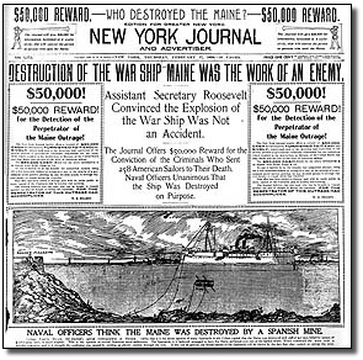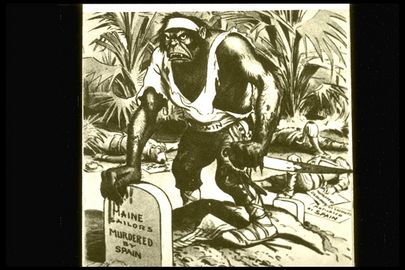The USS Maine Explosion: A Turning Point in a Decision to Declare War
After the Explosion...
- The public was enraged, some immediately after hearing about the explosion, and some waiting to hear the results of the inquiry
- Anti-Spain feelings strengthened, and citizens wanted revenge
- War was now the only option to stop Spanish destruction
- The majority of the population was united in the movement to intervene
- Some newspapers, like the Chicago Chronicle, changed sides after the explosion, switching from anti-war to pro-war
- The explosion "precluded an obtainable peace or...accelerated an inevitable war"
...war was at once definite and inevitable

- The war was now a domestic issue -- We were just attacked, do we fight back or not?
- The U.S. was now directly involved in the Spanish-Cuban war
- McKinley still tried to hold back the push for war, but at the same time he made quick preparations
- The government felt pressured by the public to declare war
- After the release of the inquiry findings, McKinley's "difficulties were over"
- McKinley, being a good politician, listened to the American people and formally declared war on Spain
- The U.S. had done all it could have to reach a peaceful settlement, but Spain could no longer be tolerated

- This political cartoon from 1898 depicts an ape wearing a sash labeled, "Spain." The ape is hunching over a gravestone labeled, "Maine sailors: Murdered by Spain."
- This shows America's feelings about who caused the explosion. The general public view was that Spain was the culprit.


